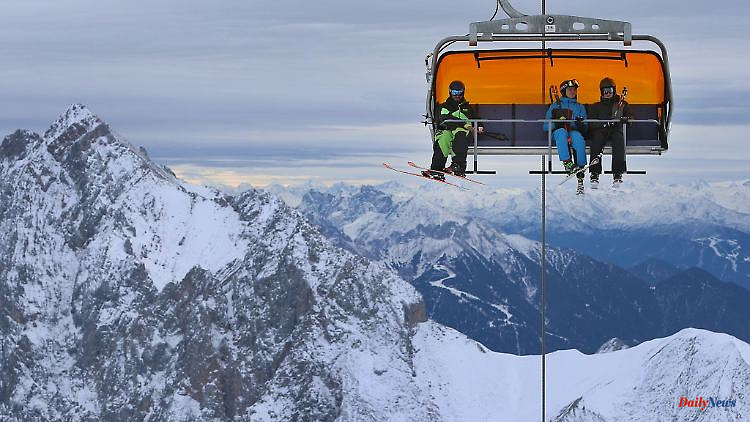Little snow, great hope: The Zugspitze is one of the first ski areas in Germany to start winter operations, initially on one slope due to a lack of snow. The Corona requirements are gone, but now it's about saving energy.
Garmisch-Partenkirchen (dpa/lby) - Skiers can make their first turns on the Zugspitze on Friday. The winter season starts on Germany's highest mountain (2962 meters). However, there is no snow, so initially only one lift is running. It's also starting in Winterberg in the Sauerland - also limited with two ski lifts for the time being.
There are no corona requirements for the time being. Nevertheless, the industry is once again facing an unusual season. In view of higher energy costs, the prices for ski passes are increasing in many places. On average, skiing will be about ten percent more expensive.
The lift operators have launched energy-saving concepts. The Bayerische Zugspitzbahn wants to save around ten percent of its energy this winter. Lifts should run more slowly outside of peak times, chairlift seats remain unheated and radiant heaters at snack huts are switched off.
Elsewhere, night skiing with floodlights should be avoided. Snow cannons should be used less. However, there is no snow on the Zugspitze itself. Last but not least, there is a lack of snow there because of the hot summer: there is hardly anything left of the old snow that has been pushed together in protected hollows for the next season. It was only on Wednesday that the German Weather Service reported that the period from January to November in Germany had never been as warm as 2022 since 1881.
In neighboring countries, operations have already started, especially in glacier ski areas: skiers are already making their turns in Saas Fee, Zermatt, St. Moritz and Grindelwald in Switzerland, as well as in Ischgl and in Sölden in Austria.












